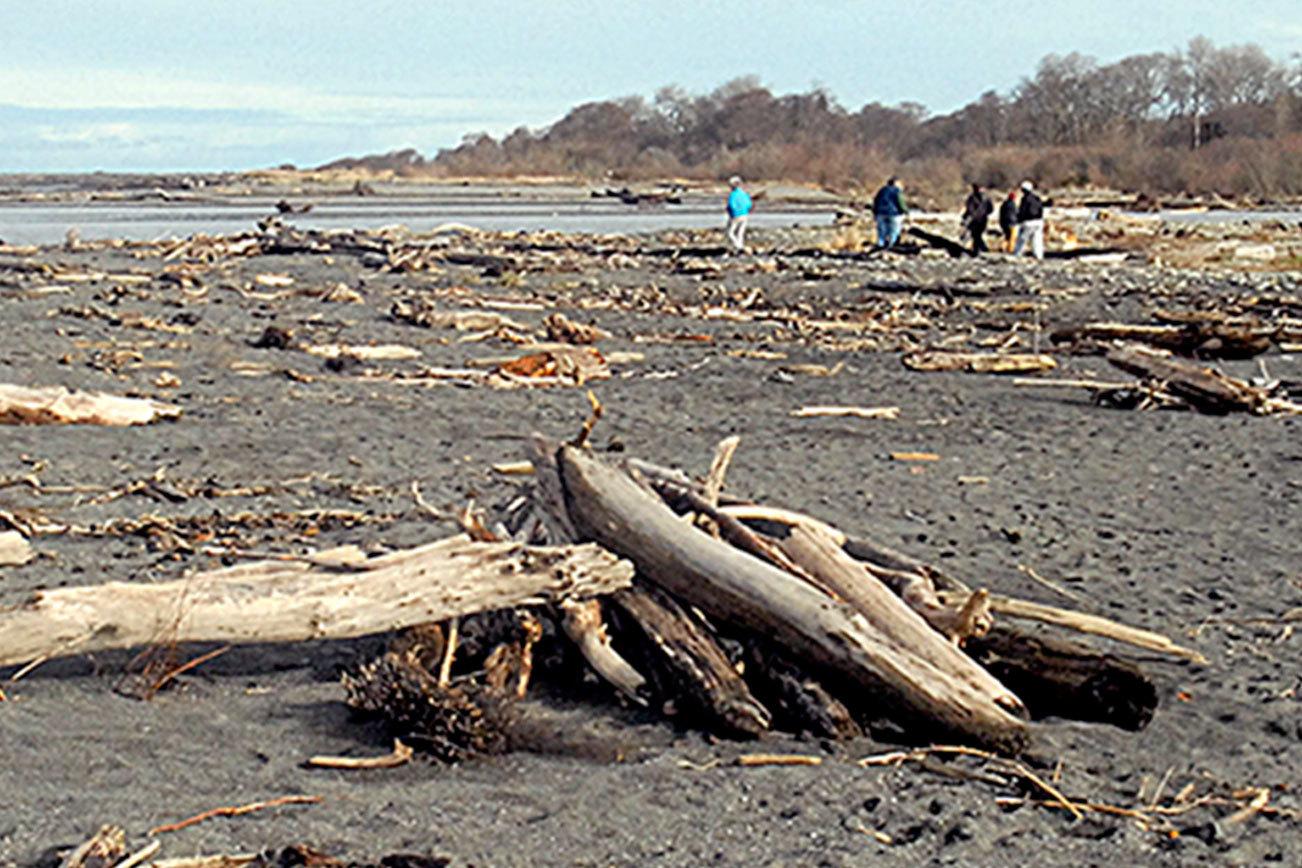PORT ANGELES — The Coastal Watershed Institute is taking registration now for a free tour and public workshop of the renewed Beach Lake shoreline Saturday.
The tour of the Beach Lake Acquisition and Restoration Project site will be from 9 a.m. to 11 a.m. Preregistration is required at jamie.michel@coastalwater shedinstitute.org or 206-282-3025.
It didn’t take long for the half-mile section of eroded beach to be transformed after derelict armor was removed east of the Elwha River mouth.
In one tidal cycle, parts of the sediment-starved, coarse-cobble shoreline were covered by 6 feet to 10 feet of sand after the armoring was removed in August.
“The transformation was immediate, and the now sandy beach created from wave-transported Elwha sediment is simply beautiful,” said Jamie Michel, nearshore biologist with the nonprofit Coastal Watershed Institute and project manager.
“A visually stunning, large and sorely needed new public access to the Elwha shoreline is unfolding,” he added.
In one week, nearly 3,000 cubic yards of riprap and concrete slab — one-third of the total estimated derelict rock at the site — were removed from the shore as part of a $2 million, multi-agency effort to restore the beach and coastal wetlands for fish and wildlife habitat, Michel said.
Once completed in about a year, the project also will provide public access to the Elwha nearshore through the purchase of a 23-acre parcel adjacent to the Lower Elwha Klallam Tribal Reservation.
The Coastal Watershed Institute (CWI) was awarded state and federal grant funds for the conservation and restoration of a parcel located east of the Elwha River on the Strait of Juan de Fuca last spring, including a $1 million grant and additional funding from the state Salmon Recovery Funding Board and Puget Sound Partnership.
In early August, the group completed a conservation purchase of this property with funds from the U.S. Fish and Wildlife Service and state Recreation and Conservation Office, Michel said.
The following week, CWI began the process of removing abandoned shoreline armor from the beach in front of the property to allow the shoreline to restore itself with sediment from the Elwha River.
“The work is not complete — nor is our funding,” Michel said.
Michel said another $700,000 is needed to remove structures and remaining riprap from the site, to revegetate an old cow pasture, to provide parking and to install interpretive signs, among other final tasks.
Once restored, the intent is to turn the land over to the Lower Elwha Klallam tribe, which will manage it for public access.
The armor was placed on the beach beginning in the 1950s to stem rapid erosion east of the Elwha River mouth. The shoreline was eroding because naturally flowing sediment was blocked by the two dams, Michel said.
The derelict armor was removed two years after the last of the Elwha River dams were taken out.
The National Park Service spearheaded a $325 million river restoration project highlighted by the removal of the century-old Elwha and nearly century-old Glines Canyon dams.
CWI is studying changes to the landforms and aquatic life in and around the mouth of the Elwha River.
Although most of the derelict armor has been removed, the Beach Lake Acquisition and Restoration project is not yet complete.
“CWI and our conservation and restoration partners are working as quickly as possible to remove the existing buildings, revegetate the property and complete infrastructure work needed for public access,” Michel said.
“Significant funding is needed to complete the project, including removing the remaining derelict beach armor that was not exposed on the beach surface this summer during Phase I of armor removal.”
Saturday’s tour and workshop will celebrate the restoration, acknowledge a long list of supporters, update the community on the progress “and engage citizens to help us motivate funders to help us expedite the public opening of this property,” Michel said.
More information on the Coastal Watershed Institute can be found at www.coastalwatershed institute.org.

